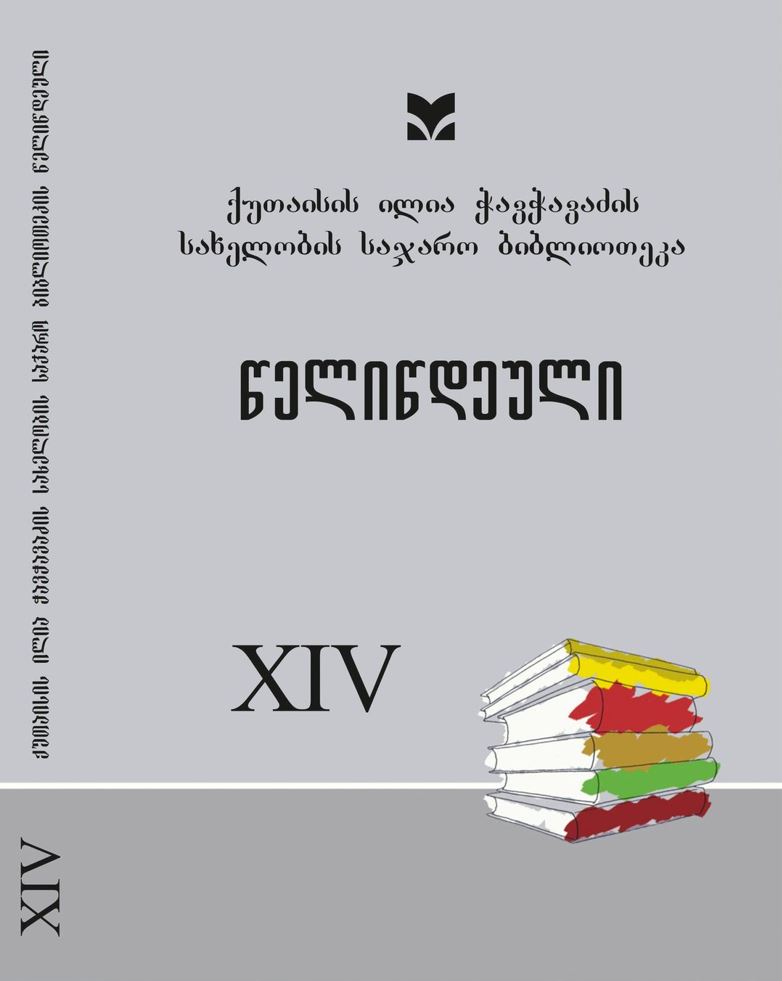აფხაზეთის საკითხი გიორგი მერჩულის „გრიგოლ ხანძთელის ცხოვრების“ მიხედვით
DOI:
https://doi.org/10.61491/yk.14.2022.6970საკვანძო სიტყვები:
აფხაზეთი ქართულ ჰაგიოგრაფიულ მწერლობაში, გრიგოლ ხანძთელის მოღვაწეობა, ტაო-კლარჯეთის ეკლესია მონასტრებიანოტაცია
In the genre of Georgian hagiographical writing known as „On lives“, there are approaches suitable for the given era, where clergymen occupy a central role in organizing secular life and resolving worldly matters through the service of spiritual life. This phenomenon is exemplified in the „Life of Grigol Khandzteli“, whose spiritual journey is directed towards constructive engagement with secular life, aiming to regulate it. With this kind of exploit, the rapprochement of the earthly life and life in heaven turn more visible, this synthesis transforms the existence of the country and shapes the way of its unification, based on a single cultural-state soil.
The contributions of Saint Grigol Khandzteli extend beyond bridging the gap between heavenly and earthly realms; they also encompass the formation of Georgia as a unified nation. Throughout his endeavors, spanning various regions such as Samtskhe, Kartli, Tao-Klarjeti, and Abkhazia, he serves as a unifying force, bringing these „countries“ together into a cohesive state known as Georgia. The persona of St. Grigol Khandzteli transcends the confines of a specific historical period, dismantling the boundaries of a single nation and uniting a fragmented society and country through the construction of churches and monasteries, the offering of prayers, the establishment of regulations, and the promotion of literacy.
In the daily life of St. Grigol Khandzteli, there emerges an aspiration towards universal work rather than personal gain, stemming from the harsh realities of life within the country. Ioane Sabanisdze’s call for the protection of the national route of development takes on new dimensions in the ninth century and is complemented by the scholarly endeavors of Giorgi Merchule, who expands the national idea through his exploration of St. Grigoli’s merits.
Grigol Khandzteli becomes a unifier of the earthly and heavenly worlds, establishing order in the wilderness and fostering religious and secular life on solid foundations. These achievements are the result of his inexorable efforts and exalted superhuman qualities, which command respect and reverence from both secular and religious spheres. The obedience and awe expressed towards St. Grigol Khandzteli’s divinely ordained mission demonstrate the acknowledgment of his authority.
In Giorgi Merchule’s „Life of Grigol Khandzteli“, the development of principles centered around national unity and the search for national foundations represents a significant step not only within the context of a specific era but also in a contemporary context. Previous national ideologies paved the way for the establishment of national values, the preservation of territorial integrity, and the cohesion of the nation.
St. Grigol Khandzteli integrates the „country“ of Abkhazia into the broader space of unified Georgia, bringing it into the realm of spiritual and state coexistence. Through the construction of the Ubei monastery, he establishes a center of Christian faith in western Georgia, where the king, as a statesman, governs the country not only unilaterally but also as an active participant in spiritual life. In his discourse with King Demete, St. Grigol Khandzeteli emphasizes the pivotal role of the king’s authority in the process of rebuilding the nation while highlighting the indispensable contributions of spiritual figures and nuns, without whom the unification, development, and progress of the country would not be able to inspire benevolent paths




